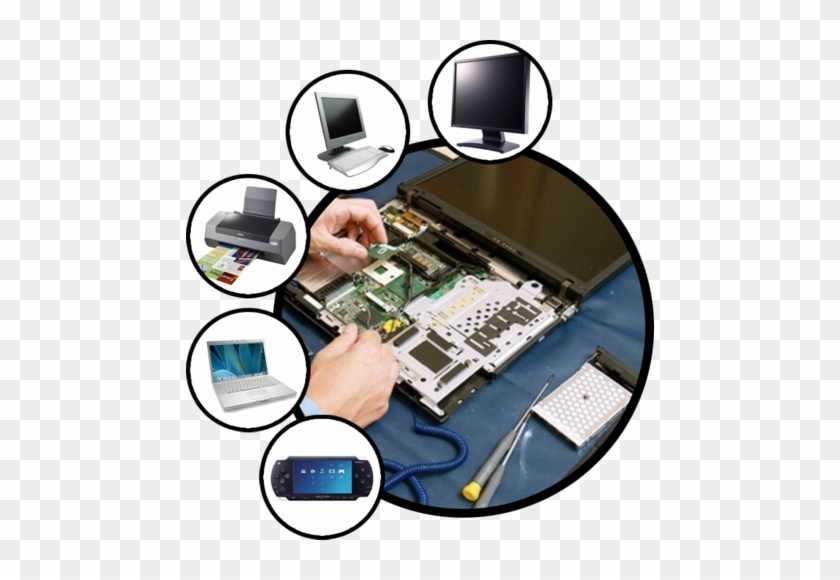Revive Your Tech: Essential Tips for Effective Computer Repairs
Revive Your Tech: Essential Tips for Effective Computer Repairs
Blog Article

In today's fast-paced digital world, a well-functioning computer is essential for both personal and professional tasks. When your system starts to show signs of trouble, it can be frustrating and disruptive. From sluggish performance to unexpected crashes, computer issues can significantly hinder your productivity. That’s where effective computer repairs come into play, providing the necessary solutions to keep your devices running smoothly.
At RT, we understand the importance of reliable technology in your life. As a leading provider of computer repairs, network repairs, and virus removal services in all of Connecticut, we strive to offer comprehensive solutions tailored to your needs. Whether you’re dealing with a minor glitch or a major malfunction, our team is here to help. Call now and receive a free diagnosis to get your tech back on track.
Understanding Common Computer Issues
Many people encounter a variety of issues with their computers that can hinder performance and productivity. One common problem is slow performance, which can be caused by outdated software, insufficient memory, or too many background applications running simultaneously. Users may notice longer boot times, sluggish program launches, and delays when switching between applications. These symptoms often indicate that the system needs some optimization or potential hardware upgrades.
Another frequent issue is connectivity problems. Whether it's a lack of internet access or difficulties in connecting to a printer or network, these problems can be frustrating. Issues can stem from incorrect network settings, faulty hardware, or interference from external devices. Regular maintenance, such as checking connections and ensuring the proper functioning of network devices, can help prevent these issues.
Virus and malware infections are also serious concerns for computer users. These malicious programs can jeopardize personal information, slow down system performance, and lead to data loss. Symptoms of infection may include pop-up ads, unexpected crashes, or unfamiliar programs appearing. It’s crucial to have reliable antivirus software installed and to perform regular scans to keep your system safe.
DIY Repair Tips
When dealing with common computer issues, there are several straightforward steps you can take to troubleshoot. First, always begin with the basics: check if your device is plugged in and powered on. If it's not responding, inspect the power cable and connection. Sometimes, a faulty plug or cable can cause the device to appear dead. If your computer boots up but runs slowly, consider closing unnecessary applications or restarting it to refresh the system.
Book Now
Another important DIY tip is to regularly clean your computer’s hardware. Dust and debris can accumulate inside your device, leading to overheating and performance issues. Use compressed air to carefully remove dust from vents, fans, and internal components if you feel comfortable opening your unit. Additionally, keeping the exterior clean can help prevent external damage and improve air circulation.
Lastly, don’t underestimate the power of software maintenance. Regularly update your operating system and installed applications to ensure they run smoothly and securely. Use built-in tools to check for disk errors and optimize performance. If you suspect a virus but don’t have access to professional services, consider using free antivirus tools available online for a quick scan. All these steps can help extend the life of your computer and improve its functionality without the need for professional repairs.
When to Seek Professional Help
Recognizing when to seek professional help for computer repairs is crucial to preventing further damage and ensuring efficient recovery. If your computer is exhibiting persistent issues such as frequent crashes, slow performance, or strange error messages that you cannot resolve, it may indicate a deeper underlying problem that requires expert attention. Attempting to fix these issues without adequate knowledge or tools can lead to complications that worsen the situation.
Another sign to consider professional assistance is when dealing with virus or malware infections. If you notice unusual behavior, such as unauthorized software installations or unexpected pop-ups, acting quickly is essential. While some users may attempt to use antivirus software to resolve these issues independently, professionals like RT are equipped with specialized tools and techniques to effectively remove malicious software and safeguard your system against future attacks.
Lastly, if your network experiences connectivity issues that you cannot troubleshoot, seeking professional help is advisable. Issues like frequent disconnections, slow internet speeds, or problems with network configuration may require technical expertise for resolution. A professional team can analyze your network setup, identify the cause of the problems, and implement the necessary repairs to ensure a stable and secure connection.
Preventative Maintenance Strategies
Regularly updating your software is one of the simplest yet most effective strategies for preventing computer issues. Operating systems and applications frequently release updates to address security vulnerabilities, improve performance, and fix bugs. By enabling automatic updates or scheduling regular checks, you can ensure your computer remains in optimal condition and protected against the latest threats. This proactive approach minimizes the risk of encountering problems, allowing your system to run smoothly over time.
Another vital aspect of preventative maintenance is conducting periodic hardware checks. Over time, dust and debris can accumulate inside your computer, causing overheating and impacting performance. Make it a habit to clean your computer's interior, paying attention to fans, heat sinks, and connectors. Additionally, checking for wear and tear on components like hard drives and power supplies can help identify potential issues before they lead to failures. Regular physical maintenance helps extend the life of your hardware.
Lastly, implementing a solid backup strategy is essential for safeguarding your data. Regularly backing up important files can protect you against data loss due to hardware failure, malware, or accidental deletion. Utilize cloud storage solutions or external hard drives to create redundant copies of your critical files. A robust backup plan not only secures your data but also gives you peace of mind, knowing that you can quickly recover from unforeseen incidents and keep your workflow uninterrupted.
Report this page